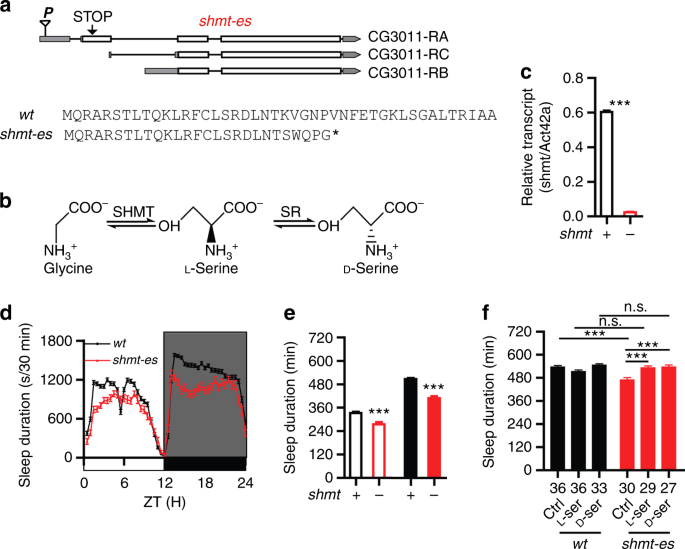D-Serine made by serine racemase in Drosophila intestine plays a physiological role in sleep - Nature Communications

The article discusses recent research on the role of the gut-brain axis in sleep regulation and its implications for neurological disorders. The authors propose that the gut microbiome plays a crucial role in modulating sleep duration and quality through several mechanisms, including the production of hormones and neurotransmitters that interact with the brain's circadian rhythm. They also suggest that alterations in the gut microbiome may contribute to sleep disorders such as insomnia and restless leg syndrome. The study highlights the importance of interorgan communication in regulating sleep patterns and its potential as a therapeutic target for neurological disorders.






